
Iran, Azerbaijan Set To Develop Key Energy Projects - Ambassador Mojtaba Demirchilou (Exclusive Interview) (PHOTO)
According to the ambassador, the first direction involves holding meetings of the Joint Economic Commission at the state level between Iran and Azerbaijan. These meetings are important for implementing projects that simplify trade, such as logistical plans. The most recent session of the Intergovernmental Joint Economic Commission was held in Tehran, providing a platform to strengthen relations and expand trade.
Demirchilou added that the second direction focuses on business interactions, allowing entrepreneurs from both countries to familiarize themselves with each other's potential and opportunities, which could contribute to higher trade turnover.
"In this framework, it is possible to highlight important steps such as increasing mutual business visits, simplifying border procedures, and expanding flights between the two countries," he noted.
Mojtaba Demirchilou emphasized that in 2024, trade turnover between Iran and Azerbaijan rose by 34 percent compared to 2023, reaching $647 million. However, he emphasized that this level still falls short of expectations. Iran is working to enhance economic relations by removing financial and banking obstacles, simplifying transit and freight processes, and increasing connections between business communities.
Iran and Azerbaijan outline key initiatives in the energy sector
The ambassador stated that bilateral and multilateral cooperation projects in the energy sector between Iran and Azerbaijan have been identified.
Furthermore, Demirchilou added that the projects include the implementation of the cooperation agreement on the oil reservoir in the Caspian Sea, synchronization of the electricity grid between Iran-Azerbaijan-Russia, the transportation of Russian gas to Iran via Azerbaijan, the gas swap between Azerbaijan-Iran-Iraq, and the gas and electricity swap between Azerbaijan-Iran-Pakistan.
"The energy sector is of great importance in the development of relations between Iran and Azerbaijan. Iran and Azerbaijan have very good relations in this area," he explained.
The official pointed out that Iran has made big investments in the energy sector of Azerbaijan. "The two countries have built hydrojunctions on the Araz river for joint operation, and in the near future, hydropower plants will be built at these hydrojunctions," he added.
Moreover, Demirchilou mentioned that the details of synchronizing the electrical grids of Iran, Azerbaijan, and Russia are currently being worked out.
The ambassador underlined that the Iranian Monenco company has completed research work on this exchange of electricity and has prepared and submitted its reports to the parties. "Synchronization of the electricity networks can increase the security of the electricity networks of the three countries and create the possibility of exporting electricity to a third party," he pointed out.
Demirchilou added that in May, a high-level delegation of the Iranian Ministry of Energy visited Baku in this regard. ''During the visit, they held talks on ways of cooperation in the energy sector and, in particular, on the synchronization of the electricity network between Iran, Azerbaijan, and Russia,'' he noted.
Construction of the new Araz River bridge nears completion
According to him, the construction of a new bridge over the Araz River in the Aghband-Kelaleh region, connecting Iran and Azerbaijan, is expected to be completed by the end of the year.
He underlined that about 63 percent of the construction has already been finished. Demirchilou stated that work is now underway to expand the highway in the Jolfa direction on the Iranian side. Several tunnels are planned as part of the highway extension from Kelaleh to Jolfa.
"This highway is being built with Iran's own funds. It will allow Azerbaijani citizens to travel more easily and safely between Nakhchivan and the rest of Azerbaijan," Demirchilou said.
Progress on improving customs efficiency along the North-South Corridor
The ambassador said that when the International North-South Transport Corridor is fully operational, it will serve the interests of Iran, Azerbaijan, and other countries in the region.
According to Demirchilou, as is well known, the corridor has three routes in Iran. The western route of this corridor connects Iran and Russia, passing through Azerbaijan. The diplomat noted that work is currently underway with Russia's participation to construct the Rasht-Astara railway as part of this route.
The Iranian ambassador added that, along with improving the Rasht-Astara railway of the North-South Corridor, Iran is seeking to remove some obstacles at border crossing points and simplify customs procedures.
"In other words, to utilize the potential of the North-South international transport corridor, it is necessary to develop infrastructure first and foremost, while also developing other opportunities in parallel," he noted.
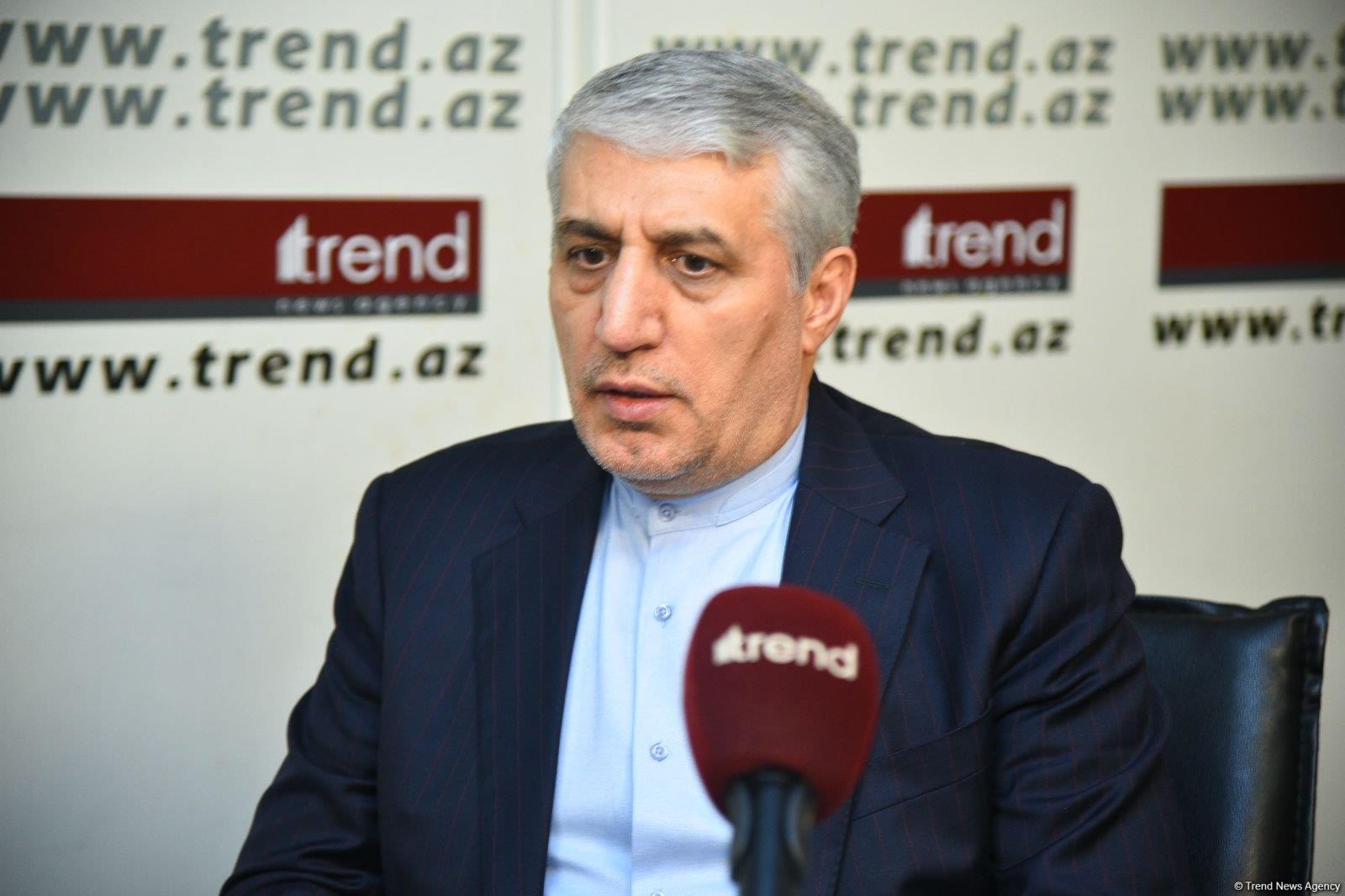
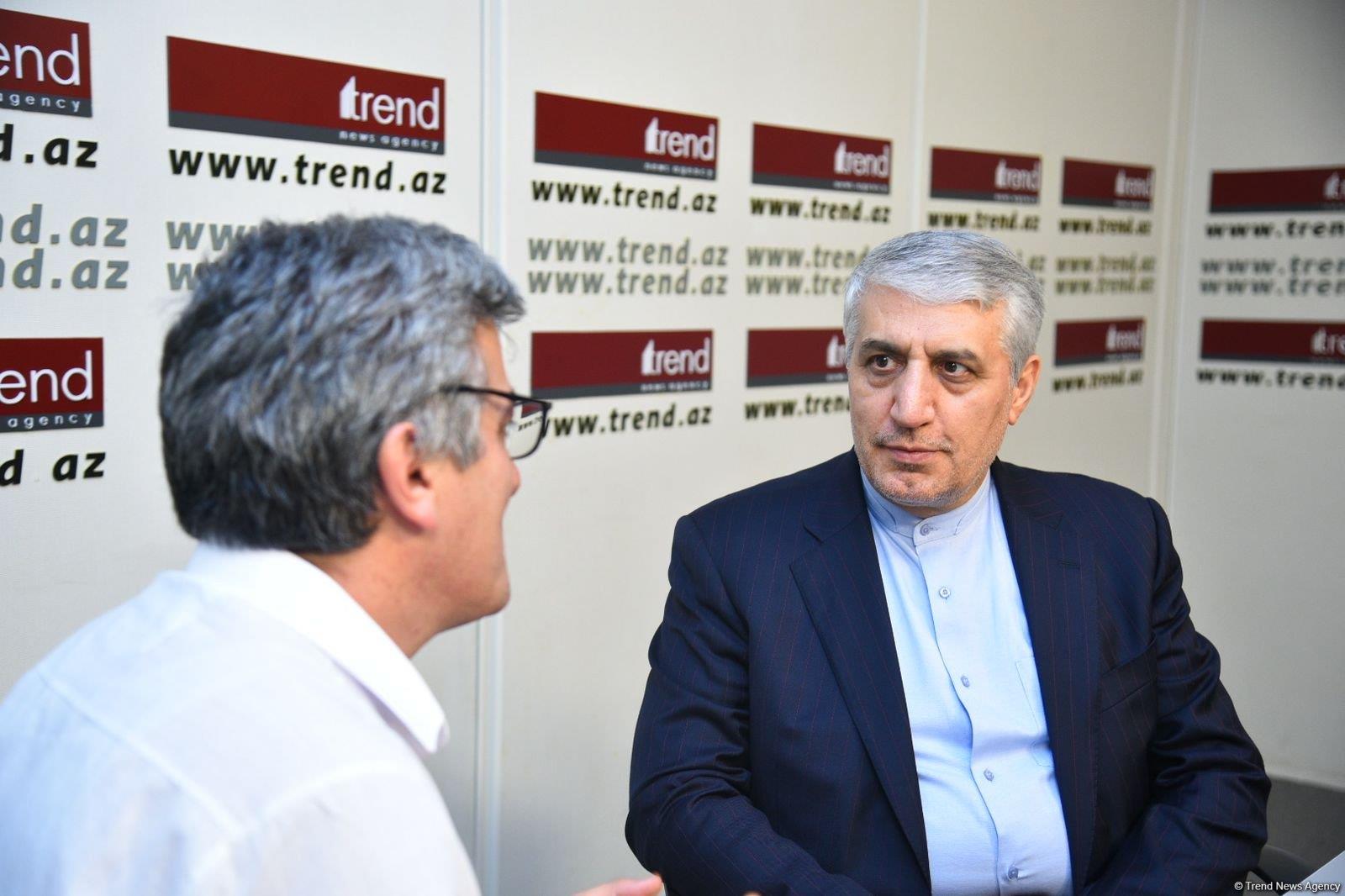
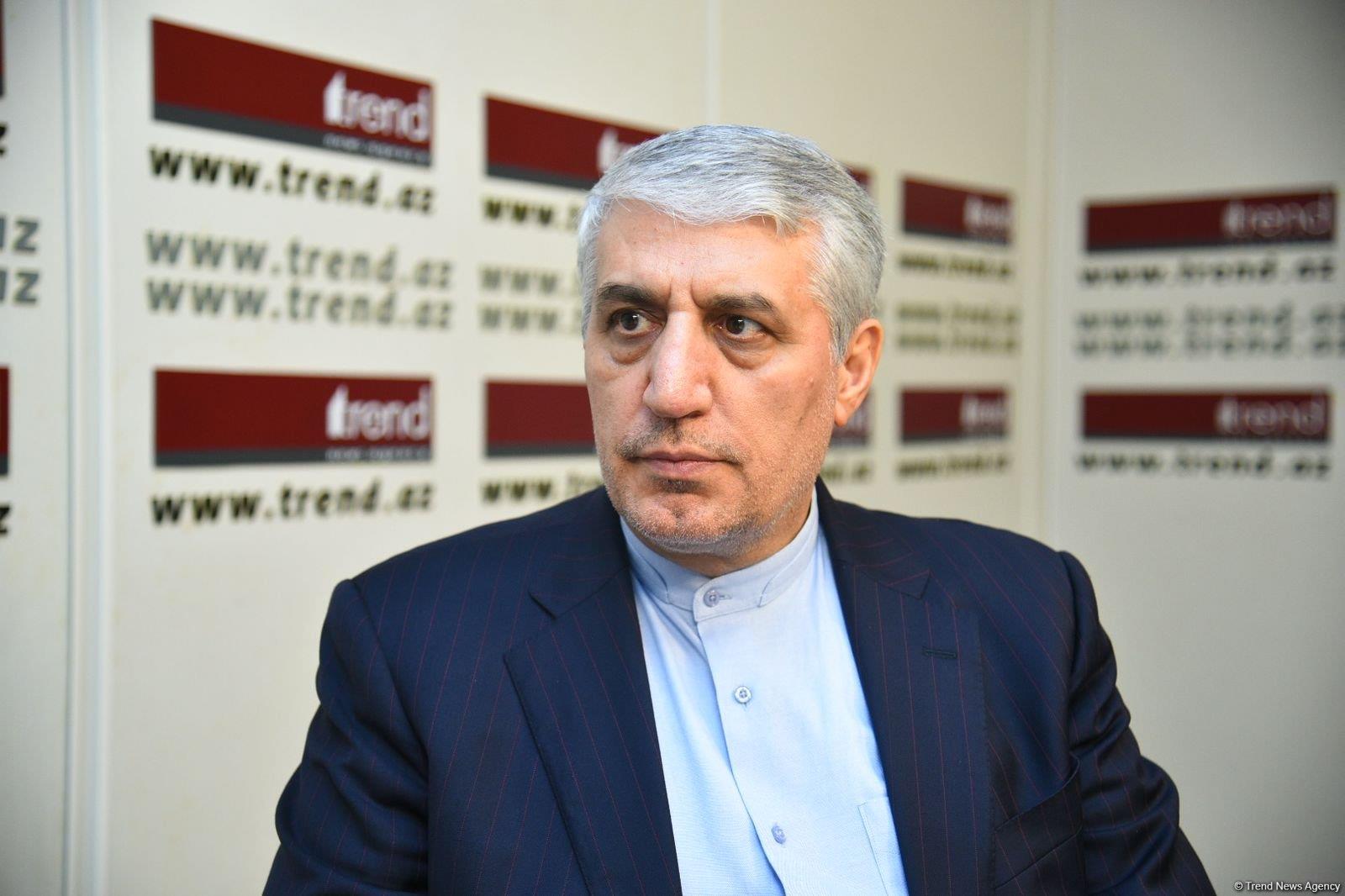
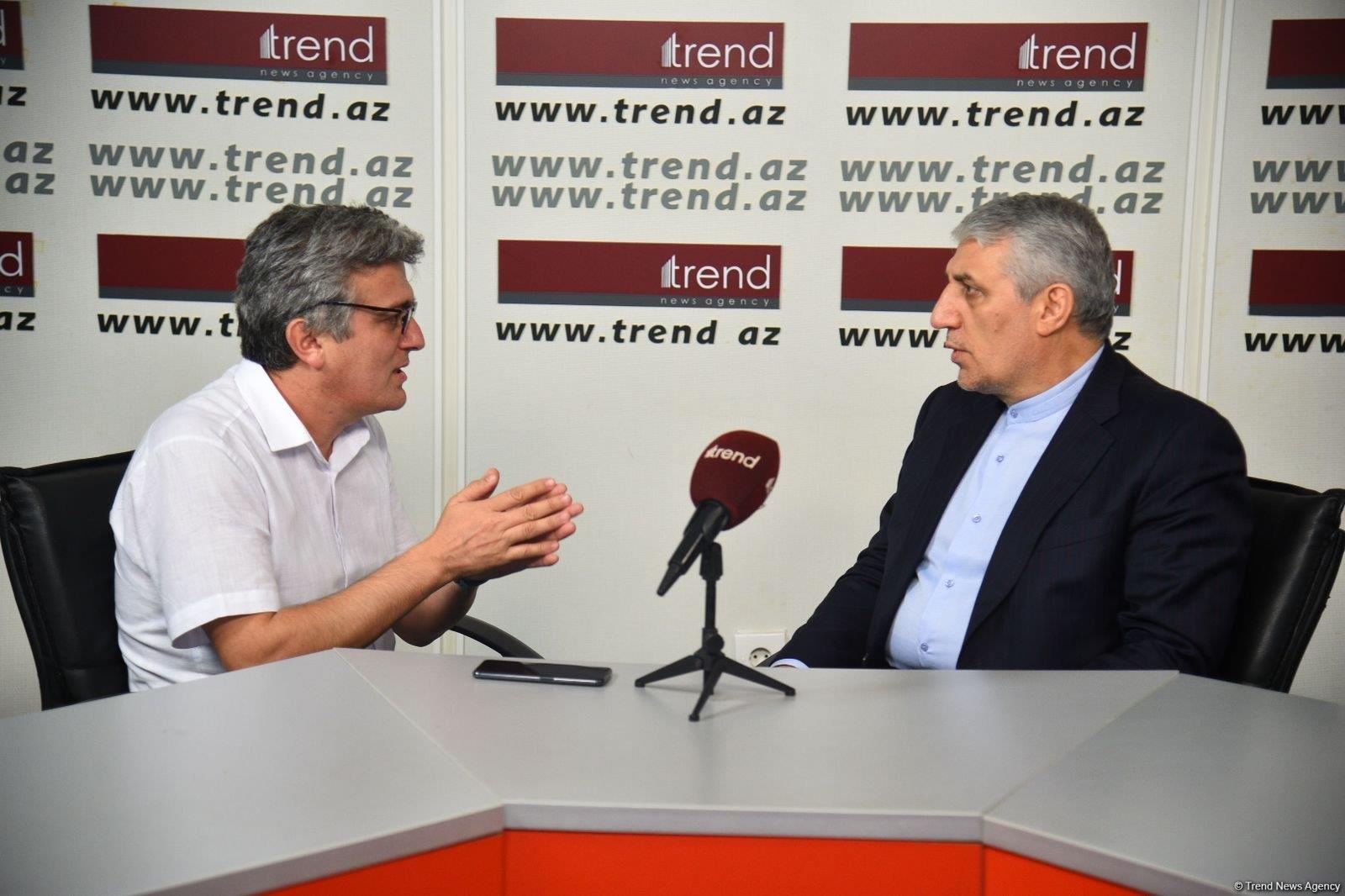
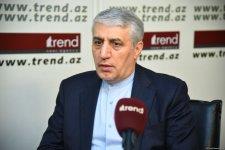
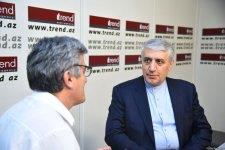
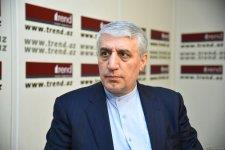
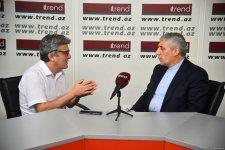

Legal Disclaimer:
MENAFN provides the
information “as is” without warranty of any kind. We do not accept
any responsibility or liability for the accuracy, content, images,
videos, licenses, completeness, legality, or reliability of the information
contained in this article. If you have any complaints or copyright
issues related to this article, kindly contact the provider above.

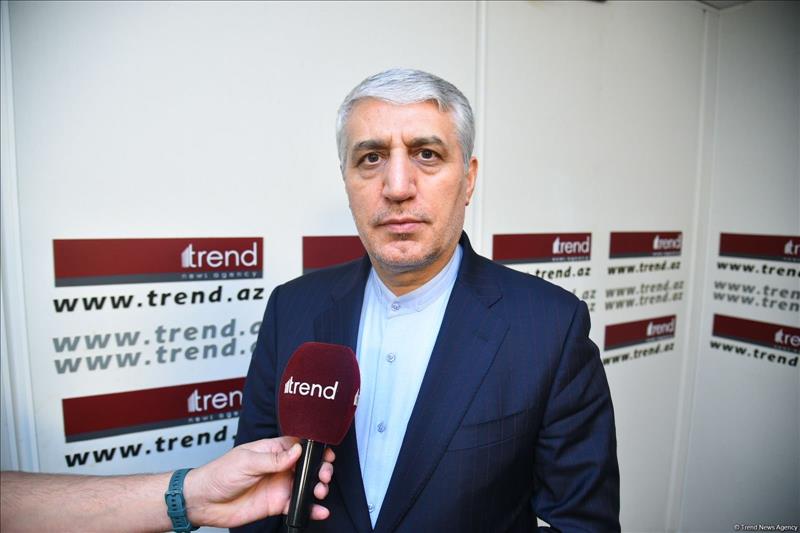















Comments
No comment